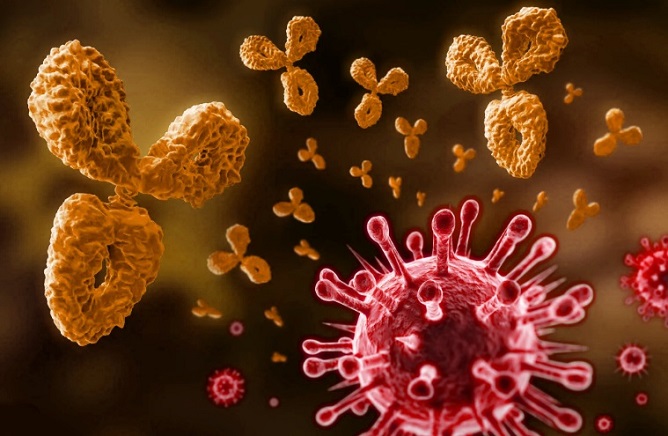Nikhil Prasad Fact checked by:Thailand Medical News Team Jul 15, 2025 7 months, 1 week, 5 days, 5 hours, 8 minutes ago
Medical News: German Scientists Uncover Key Immune Clues in Long COVID Patients
A new study has revealed that many people suffering from Long COVID symptoms may be affected by a specific group of abnormal immune proteins known as functional autoantibodies. These antibodies seem to target important cell receptors in the body, disrupting key physiological functions and potentially driving many of the lingering symptoms experienced after a COVID-19 infection.
 Mysterious Autoantibodies Behind Long COVID Symptoms Identified
Mysterious Autoantibodies Behind Long COVID Symptoms Identified
This
Medical News report covers a groundbreaking investigation led by researchers from Friedrich-Alexander-Universität Erlangen-Nürnberg (Germany), Helmholtz Zentrum München – German Research Center for Environmental Health, Berlin Cures GmbH, and the Deutsches Zentrum für Immuntherapie. Together, they examined 194 Long COVID patients and found that most carried functional autoantibodies—called GPCR-fAAbs—that attack G-protein-coupled receptors, which are critical to vascular, neurological, and immune system function.
Which Autoantibodies Were Found and What They Do
The researchers discovered that four types of these autoantibodies were most common among Long COVID sufferers:
-β2-fAAb (found in 92.8% of patients)
-M2-fAAb (87.1%)
-AT1-fAAb (85.6%)
-MAS-fAAb (85.6%)
These autoantibodies do not behave like typical immune responses which destroy infected cells. Instead, they overstimulate the receptors they target, creating a toxic loop of immune activation, inflammation, and stress that persists long after the virus is gone.
One of the most alarming findings is the strong link between β2-fAAb and symptoms such as dizziness, difficulty concentrating (also called “brain fog”), and Postural Orthostatic Tachycardia Syndrome (POTS). Meanwhile, M2-fAAb is linked to fatigue, inflammation, and disrupted cardiovascular signaling. A rare antibody, ET-A-fAAb, was associated with worsening of pre-existing neurological disorders.
The Vicious Cycle of Inflammation and Symptoms
The researchers propose a dangerous chain reaction. These autoantibodies cause constant receptor stimulation, which leads to tissue stress and inflammation. In turn, this creates an environment where more antibodies are produced, sustaining a chronic inflammatory state that may explain why Long COVID symptoms can persist for months—or even years.
Women were more likely to report symptoms such as hair loss, lack of concentration, and worsening of prior medical conditions. The study also found a strong correlation between age, gender, and specific autoantibody patterns, suggesting that individual biology may play a role in vulnerability.
Conclusions
This study provides important evidence that functional autoantibodies targeting GPCRs are not just present in many Long COVID pati
ents but are also strongly associated with the most common and disabling symptoms. The clustering of β2-fAAb, M2-fAAb, AT1-fAAb, and MAS-fAAb suggests these immune proteins could be key culprits in the disease process. These findings open new avenues for both diagnosis and treatment. Blocking or removing these autoantibodies could potentially offer relief for millions suffering from Long COVID worldwide.
The study findings were published in the peer reviewed International Journal of Molecular Sciences
https://www.mdpi.com/1422-0067/26/14/6746
For the latest on Long COVID, keep on logging to Thailand
Medical News.
Read Also:
https://www.thailandmedical.news/news/ongoing-breathing-issues-in-long-covid-might-be-tied-to-iga-autoimmunity-and-hidden-clotting-dysfunction
https://www.thailandmedical.news/news/scientists-warn-that-long-covid-autoantibodies-are-sabotaging-human-fertility-worldwide
https://www.thailandmedical.news/news/breaking-thousands-of-novel-hybrid-genes-or-chimeric-rnas-found-in-the-blood-of-the-covid-19-infected
https://www.thailandmedical.news/articles/long-covid
